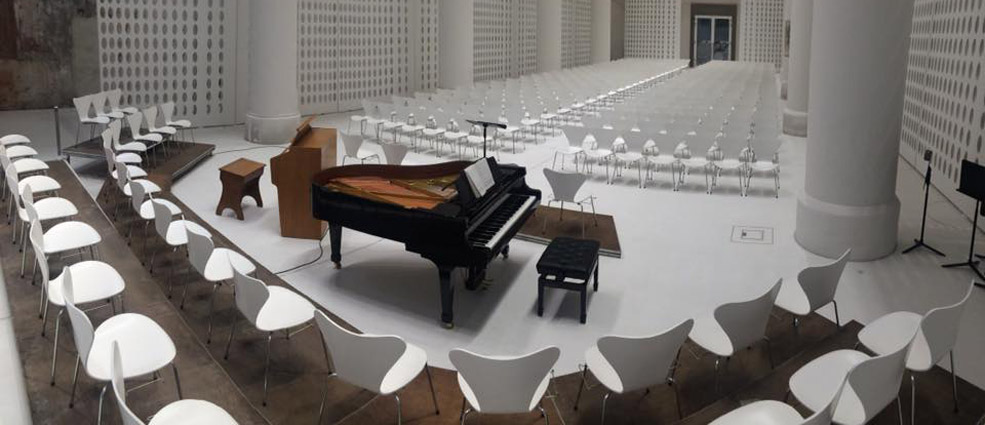Install the app
Install this application on your home screen for quick and easy access when you’re on the go.
Just tap then “Add to Home Screen”
Install this application on your home screen for quick and easy access when you’re on the go.
Just tap then “Add to Home Screen”
Install this application on your home screen for quick and easy access when you’re on the go.
Just tap then “Add to Home Screen”

Methodological experiences to complement your courses, facilitate methodological cross-fertilisation and debate – and to boost your employability!
DO2A/AULA Dominikanerstraße 2a. 96049 (City Centre)
The University of Bamberg Aula is a beautiful converted Dominican convent in the heart of Bamberg old town. Following short welcome addresses, the Academic Convenors will present this year’s Academic Programme,
Two Instructors will then each deliver a 20-minute lecture, presenting avant-première work-in-progress research, on hot societal/political topics, which demonstrate with real data how a given method, (or set of methods) produces particularly interesting, original or useful results:
Spyridoula Nezi (GESIS)
How populist parties re-shape citizens’ perception of austerity: proof from a survey experiment in Greece
Dimitris Christopoulos (MU Vienna & Edinburgh Business School)
How Social Network Analysis (SNA) can predict the longevity of political systems
The welcome address and lectures will be followed by an informal reception at which you can socialise with Winter School Instructors, Teaching Assistants and fellow participants. You can then go out and discover the beauty and charm of Bamberg by night!
Bamberg Graduate School of Social Sciences (BAGSS), Feldkirchenstraße 21, 96052
These sessions cover four courses from the broad Winter School offer. Each Instructor presents a 25-minute lecture on their course topic followed by a short Q&A, giving you a clearer picture of each course's core assumptions, goals and toolbox. Two parallel sessions run over successive lunchtime breaks, on Tuesday and Wednesday. You may bring along a cold lunch.
Session 1A – F21/01.35 Introduction to Experimental Methods Wolfgang Luhan (University of Portsmouth)
Abstract What are the main methods and techniques of experimental empirical research? Which theoretical knowledge does one need to find a research question, to deduce hypotheses and to design an experiment? Which skills are required to gather, analyse and interpret experimental data obtained in laboratory and the field? This session is an introduction to the various aspects of the rich toolbox of experimental designs. Some ‘live’ demonstrations will also be used.
Session 1B – F21/01.37 Analysing Political and Social Sequences Philippe Blanchard (University of Warwick)
Abstract How to engage in a systematic study of 'sequences', that is, successions of standard categorical states or events (professional positions, stages in political processes, etc)? Sequence analysis is a unique set of tools for representing, comparing and clustering sequences, for extracting prototypical sequences and for mining sequence populations. This session will feature real-life examples of each of these tools, including a presentation of its famous optimal matching algorithm.
Session 2A – F21/01.35 Introduction to Bayesian Inference Susumu Shikano (University of Konstanz)
Abstract Political and social scientists increasingly apply the Bayesian approach to diverse kinds of research topics. To many students and junior researchers, however, the Bayesian approach still seems rather mysterious. What are Bayesian statistics all about? What makes them different from ‘conventional statistics’? What could motivate political and social scientists to opt for Bayesian analysis? How does Markov-Chain-Monte-Carlo enable you to conduct Bayesian inference?
Session 2B – F21/01.37 Historical Methods for Social Scientists Robert Adcock (American University)
Abstract This course offers an interdisciplinary and methodologically pluralist introduction to historical methods. It highlights recurrent methodological cleavages between scholars who all understand themselves to do historical work, and uses these to introduce and elucidate the diverse, at times directly competing, historical research practices associated with new institutional economics, historical sociology, comparative historical analysis, process-tracing, and interpretivist social science.
F21/01.35 & F21/01.37
Setup These are parallel interactive workshops in which pre-PhD researchers give a short presentation (max. 10 minutes) on aspects of their ongoing research, with an emphasis on methodological issues. Each presenter then seeks feedback from a designated discussant (usually a Winter School Instructor). The remaining time is allocated for open discussion among all audience members. NB – Presentation proposal submissions for this year's Convince Us sessions have now closed. All Winter School participants are welcome to join the audience; no prior registration needed. You may bring along a cold lunch.
The Convince Us sessions are sponsored by the ECPR Standing Group on Political Methodology, under the supervision of Lea Sgier and Kathrin Thomas